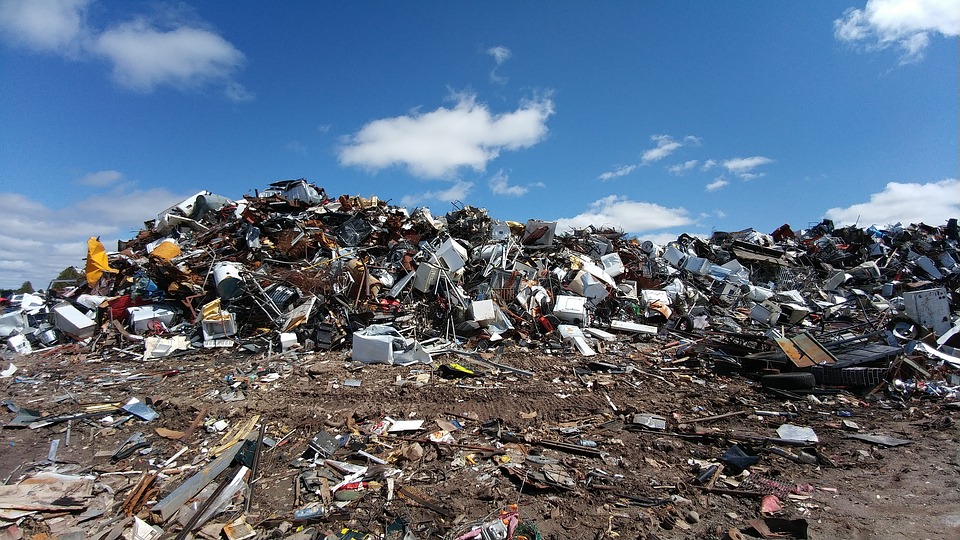Waste Management: Lucrative business ideas that also ensure a more sustainable world
The waste management industry is projected to reach USD 530 billion by 2050 and is coming out with innovative ways to productively utilize the waste while also creating jobs.

Humans are expected to generate 3.4 billion tons of trash annually by 2050 and countries are simply running out of places to dump the waste in. But the problem isn’t just limited to where to dispose of the waste, it also poses an enormous threat to public health and the environment.
It contaminates oceans and clogs the drains. It releases harmful gases that can transmit diseases, cause respiratory infections, and even cause fires in the landfills it is dumped in.
Enters the waste management industry, which is taking the challenge head-on and is making it an economic opportunity. The industry is projected to reach USD 530 billion by 2050 and is coming out with innovative ways to productively utilize the waste while also creating jobs.
Waste to energy
The concept of waste to energy has been around for quite some time now and there are many companies that have already commercialized it but there’s still a lot of potential in the sector.
As new innovations change the dynamics of the market, it is now possible to convert almost all kinds of waste including municipal waste and agricultural waste into biogas and biofuel which can be used for many things like cooking, lighting and can even be used as fuel for vehicles after processing.
Agricultural waste like bamboo can also be used to make ethanol, which is a popular fuel and gasoline additive but can also be used for a wide array of other things like as a solvent in the manufacture of varnishes and perfumes; as a preservative for biological specimens and is even used in many medicines and drugs.
Waste plastic to roads
Plastic pollution is an overwhelming problem and even though plastic made modern life possible, the world seems to be drowning in it now. Plastic can take 1,000 years to decompose and is also a major contributor to ocean pollution.
But it’s long life also makes it a strong foundation for roads. What started as a pilot project has now been tried and tested in various parts of the world. Plastic roads have been proven successful in keeping up with harsh winters of the United States and the Middle East has also used them to keep up with hot summers, plastic roads don't easily melt and can bear the temperature of up to 66C (150F), compared to 50.2C (122.5F) for ordinary roads. The business potential in plastic roads is huge and industrialists must be quick to cope up.
Waste to textile
Fabrics and textile products can also be produced from different types of waste but most successful among them is producing these products from plastic.
Plastic waste can be processed and turned into fabrics that are on par with normal fabrics. These can then be used for making clothes, bags and other things just like normal fabrics.
The fashion industry has often been under the radar for reasons ranging from unfair wages to wasteful practices. But sustainable fashion is one trend that has all the support and is quickly catching up. Big brands are acting quickly to grab a piece of the market share of this new trend, which is here to stay.
Waste to value products
Waste can ironically be very useful when combined with the spirit of innovation and the same has already been proved by various startups.
Creating a wide variety of products ranging from stationery to fertilizers to decorative items is already possible and a significant number of such startups are already working in the sector.
But innovative waste management ideas shouldn’t give us a reason to generate more waste, it should be our responsibility to make informed decisions to ensure that the world grows in a sustainable and prosperous manner.
One of the biggest challenges that all waste management companies face is waste collection because collection methods can get very costly and thus impact the viability of their business model. Awareness among people is critical to ensure that the challenge is solved and the path ahead is a sustainable one.
(Disclaimer: The opinions expressed are the personal views of the author. The facts and opinions appearing in the article do not reflect the views of Devdiscourse and Devdiscourse does not claim any responsibility for the same.)
- FIRST PUBLISHED IN:
- Devdiscourse










